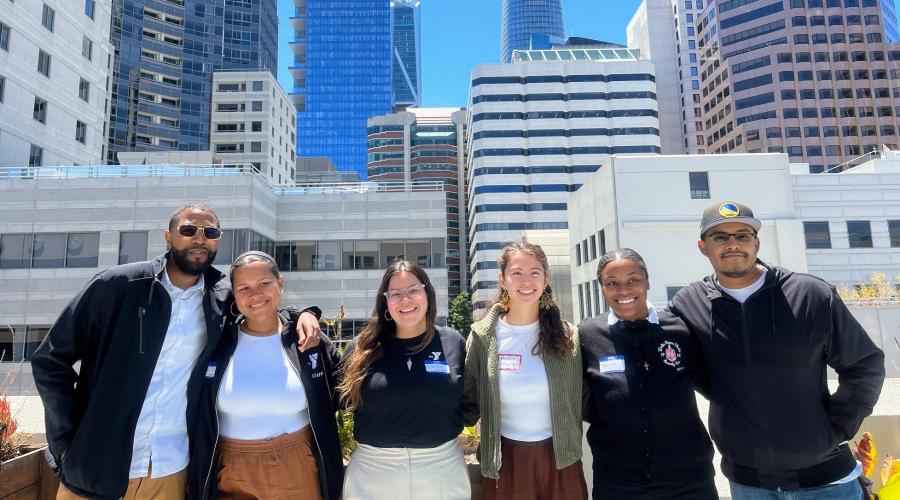
Giving Youth a Voice in Health Research
“Giving youth a seat at the table to discuss research on their health is essential. No one knows their experience better than them,” says Natalie Hibdon, a staff leader at the YMCA of San Francisco who is working with the UCSF Department of Pediatrics on a new program that partners with young people to provide guidance on research projects.
Traditionally, young people’s voices have been excluded from medical research, and the Youth Research Advisory Council (YRAC) addresses this gap to help eliminate health disparities more effectively. The YRAC was developed so that youth can advise UCSF researchers across the spectrum of the research process about the health needs of their communities.
Anda Kuo, MD, UCSF Professor of Pediatrics and YRAC co-investigator says that “advisory groups lead to more equitable research and increased participation from young people. Creating one within our own institution, in partnership with a highly regarded youth-centered organization like the YMCA, is an incredible opportunity to ground our research in the expertise of the people in the community that we serve in order to optimize wellbeing and health.”
Empowering Youth to Advise Researchers
The advisory group consists of YMCA staff and five young adult leaders like Hibdon who facilitate YRAC cohorts of ten public high school students. All YRAC members receive training from a curriculum that UCSF created with youth on the process of developing and executing medical research. Once equipped with the necessary vocabulary, knowledge and leadership skills, YRAC members provide researchers with insights into the priorities of young people and help align research with their experiences.
For example, UCSF Associate Professor of Pediatrics Emily Perito, MD, MAS, finds that her research on improving lives of young people with liver transplants often starts with what doctors and parents think would help. “We look forward to discussing with the YRAC how we can jumpstart research relationships with kids living with liver transplants and develop research projects that address their self-identified needs,” says Perito.
The goal is for the YRAC to consult on projects throughout the research phase, from the early stages of hypothesis development and study design to finding ways to reach more people when collecting data.
One member of the youth council says participants are “excited to contribute to a health-related movement, and to lead the way toward meaningful changes for communities and upcoming generations of young adults.”
Opening a Space for Young People
According to YMCA youth leaders, young people often feel like their voices aren’t taken seriously by adults, and that what they see or feel is overlooked. The struggles they face can be quite different from those that adults dealt with when they were growing up.
However, the YRAC offers a way for engaged young people to have their experiences and perspectives sought out by researchers who have committed themselves to fighting against health inequities that affect minoritized people.
The initial training sessions were a success: youth leader Tonie Shannon reported feeling very proud of the space because the youth participants felt safe to share their experiences openly. “I will forever admire their willingness to show up and be advocates for their community,” says Shannon.
With the YRAC, UCSF has another avenue to create relationships with community members based on mutual respect and a shared goal of transforming health through collective action.
The YRAC program is facilitated by the UCSF Center for Child and Community Health, which Kuo co-directs with Dayna Long, MD, UCSF Professor of Pediatrics. More information on the YRAC program can be found on the YMCA TRUE Project page.
UCSF researchers interesting in a consultation with the YRAC should reach out to Cassandra Vega, MPH, Project Manager for the UCSF Center for Child and Community Health.
